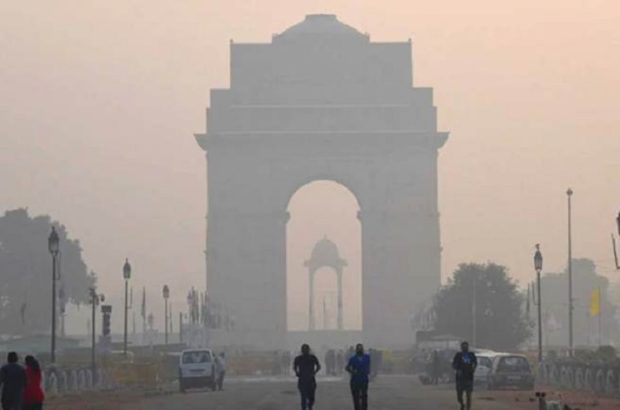
90 of city-specific clean air plans in India have no budget outlines: Study
PTI, Jun 11, 2020, 8:34 AM IST

New Delhi: Only nine among 102 approved city-specific clean air plans have a budget outline for the execution of proposed air pollution mitigation activities, while the rest of them, including Delhi, lack it, a new study has found.
“About 90 percent of India’s approved city-specific clean air plans do not have a budget outline,” said the study, conducted by think tanks Council on Energy, Environment,, and Water (CEEW) and Urban Emissions.
“75 percent of them do not contain crucial information on emission from different polluting sources, leading to replication of action points and timelines across many highly-polluted cities,” it said.
It said the cities with a budget outline for pollution-mitigation activities are: Amravati, Badlapur, Mumbai, Nashik, Pune and Solapur (all in Maharashtra), Dimapur and Kohima (in Nagaland), and Patencheru in Telangana.
The study also found that apart from Delhi’s clean air plan, other city-specific clean air plans also do not have a legal mandate for implementation.
“As India gradually emerges from a lockdown, air pollution in its cities is again on the rise,” said the study titled “How Robust is Urban India’s Clean Air Plans?: An Assessment of 102 cities”.
The study reveals that the multiplicity of agencies is another problem that plagues these plans.
“It was found that pollution control boards are in charge of only 24 percent of the mitigation activities listed in the plans, while 37 percent come under the ambit of municipal corporations and urban local bodies (ULBs),” it said.
“Over 40 percent of the action points listed fall under the purview of multiple agencies. Besides, none of the plans proposes a regional coordination mechanism, although about 30 percent of the pollution is from sources outside the city boundaries,” it said.
Tanushree Ganguly, a researcher at CEEW and a co-author of the study, said that the clampdown on all nonessential activities because of the pandemic and the resultant decline in pollution levels have made the environmental footprint of economic activity in the cities extremely evident.
“In order to ensure that blue skies become permanent, cities should be absolutely certain of their short, medium, and long-term air pollution reduction goals,” she said.
State and municipal budgets also need to reflect planned expenditure on air pollution mitigation, Ganguly added.
The National Clean Air Programme (NCAP), launched in January 2019, has listed the preparation and implementation of city-specific air quality management plans as a primary mitigation measure for reducing PM 2.5 concentration by 20 to 30 percent by 2024.
“Execution of mitigation measures calls for cross-departmental coordination. For instance, action plans of 15 non-attainment cities in Uttar Pradesh list 56 measures across 17 different agencies,” said Kurinji Selvaraj, a researcher at CEEW and a co-author of the study.
“Of these, about 30 percent of actions fall under multiple agencies and this could fragment the accountability. Hence, for each action point, it is crucial to delineate specific tasks among participating agencies.”
In the Union Budget for 2020-21, Finance Minister Nirmala Sitharaman had allocated Rs 4,400 crore “to encourage such states that are formulating and implementing plans for ensuring cleaner air in cities (with population) above one million”.
However, only nine cities have listed budgetary requirements for executing the action points listed.
Overall, the study states that the plans stand as a collection of measures without specified goals and priorities.
Besides, the lack of a national emission inventory and the absence of a standard protocol for air pollution emission reporting across states hinder the setting of emission reduction targets, it said.
The CEEW-Urban Emissions study reviewed existing global literature on clean air planning to identify key components of a clean air plan, including the presence of a legal framework, source information, responsibility delineation, and the cost-effectiveness of proposed solutions.
“The 102 approved clean air plans for Indian non-attainment cities were then examined for the presence or absence of these elements,” it said.
The CEEW is a South Asia-based not-for-profit policy research institution.
Udayavani is now on Telegram. Click here to join our channel and stay updated with the latest news.
Top News
Related Articles More

ISRO releases ISSAR 2023 report on vulnerability of space assets to collisions

No CM can remain absent for long, it’s against national interest: Delhi HC on Kejriwal

Court convicts four accused, acquits 10 in 2015 Malvani hooch tragedy

ICG apprehends Indian fishing boat with 173 kg of narcotics; two crew members detained

Ahead of phase 3 polls, Congress and BJP spar in MP over quotas, Muslim appeasement
MUST WATCH
Latest Additions

ISRO releases ISSAR 2023 report on vulnerability of space assets to collisions

Hunasagi: MLA Bairati Basavaraj’s car overturned

No CM can remain absent for long, it’s against national interest: Delhi HC on Kejriwal

Cricket for the Blind: A Transformative Journey Empowering Visually Impaired Athletes

China lifts restrictions, gives all clear nod for Tesla cars as Musk lobbies hard in surprise visit to Beijing

























